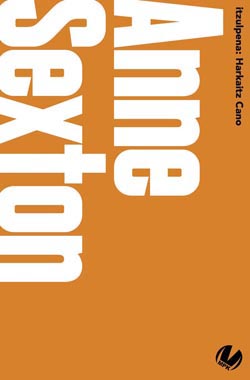
Hildakoek dakiten egia
1902ko martxoan jaio eta 1959ko martxoan hil zen amari,
eta 1900eko otsailean jaio eta 1959ko ekainean hil zen aitari.
Joana da, diot, eta elizatik urruntzen naiz,
uko eginda hilobira doan segizio zurrunari;
bihoa bakarrik hila bere gurdiz.
Ekaina da. Ausart izateaz nago nekatuegi.
Lurmuturrerantz goaz. Nire burua eguzkia
zerutik desjosten den puntuan landatzea dut irrikatzen,
itsasoa zanbuluka altzairuzko atea den lekuan ia,
zain biok elkar ukitzeko. Beste herrietan jendeak hiltzen jarraitzen du.
Maitea, harrika dator haizea
ur kazkabartutik, eta elkar ukitzea
da barrura sartuz osoki laztantzea.
Inor ez dago gaur bakarrik.
Gizonek hiltzen dute gutxiagogatik.
Eta hildakoak, zer? Zapatarik gabe doaz
harrizko txalupetan. Haiek harrizkoago,
itsasoa geldituko balitz litzatekeena baino.
Eztarri, begi eta hezur-giltzadura oro
bedeinkazioari uko egiteko dago.
[1962]
The Truth the Dead Know
For my mother, bom March 1902, died March 1959 and my father, bom February 1900, died June 1959
Gone, I say and walk from church, / refusing the stiff procession to the grave, / letting the dead ride alone in the hearse. / It is June. I am tired of being brave. // We drive to the Cape. I cultivate / myself where the sun gutters from the sky, / where the sea swings in like an iron gate / and we touch. In another country people die. // My darling, the wind falls in like stones / from the whitehearted water and when we touch / we enter touch entirely. No one's alone. / Men kill for this, or for as much. // And what of the dead? They lie without shoes / in their stone boats. They are more like stone / than the sea would be if it stopped. They refuse / to be blessed, throat, eye and knucklebone.